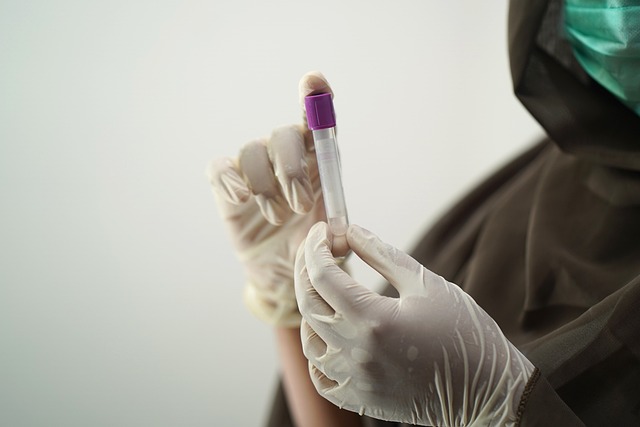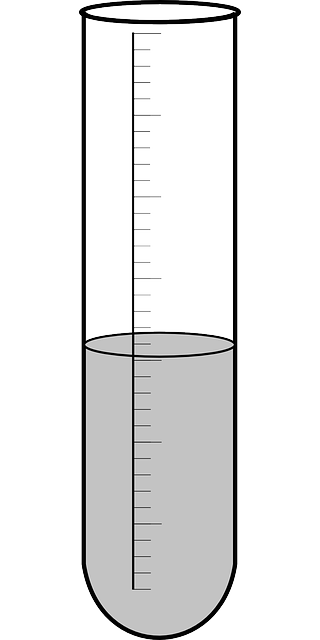The Advanced Liver Blood Test UK serves as a key diagnostic tool for assessing testosterone levels by indirectly evaluating liver health markers. For men, particularly those in the UK, regularly monitoring testosterone levels is crucial for preventive healthcare due to its impact on cognitive function, bone density, mood, and overall male wellbeing. A decline in testosterone can signal hypogonadism, characterized by symptoms like fatigue and decreased libido. The National Health Service (NHS) and private practices encourage regular liver function tests, which include markers like albumin, bilirubin, ALT, AST, and GGT, to detect early signs of hormonal imbalance. These tests are instrumental in diagnosing testosterone deficiency and informing treatment decisions, including lifestyle changes or hormone replacement therapy (HRT). Men should consult with healthcare providers for appropriate blood testing, adhere to fasting guidelines before the test, and follow up with a certified laboratory and medical professional interpretation for accurate results and effective management plans. Early detection and intervention through these tests are essential for maintaining optimal health and counteracting age-related hormonal changes in men.
men’s health remains a critical focus in modern healthcare. Testosterone, pivotal for male vitality, influences overall well-being. The correlation between testosterone levels and health is significant, with imbalances potentially indicating underlying issues. Advanced Liver Blood Tests emerge as a key diagnostic tool in the UK, offering insights into hormonal health. This article delves into the importance of these tests in accurately assessing testosterone levels, guiding men through the process of diagnosis and management within the UK healthcare system. Understanding the nuances of testosterone’s impact on health and the role of liver function testing is essential for maintaining male health.
- Understanding Testosterone and Its Impact on Male Health
- The Role of Advanced Liver Blood Tests in Assessing Testosterone Levels
- Navigating Testosterone Level Testing in the UK: A Comprehensive Guide to Diagnosis and Management
Understanding Testosterone and Its Impact on Male Health

Testosterone, often referred to as the primary male sex hormone, plays a pivotal role in maintaining overall male health and wellbeing. This androgen is responsible for the development of male reproductive tissues, as well as secondary sexual characteristics such as body hair and muscle mass. Beyond its biological functions, testosterone levels have a significant impact on cognitive function, bone density, and even mood regulation in men. A decline in testosterone can lead to a condition known as hypogonadism, which is characterized by symptoms like fatigue, reduced libido, and decreased muscle mass and strength.
For a comprehensive assessment of testosterone levels, advanced medical tests like the Advanced Liver Blood Test UK are instrumental. This test measures substances in the blood that reflect liver health and can indirectly indicate how well the body is producing hormones, including testosterone. It’s crucial for men to monitor their testosterone levels as part of a preventive healthcare routine, as imbalances can signal underlying health issues that may require medical attention. Regular monitoring, alongside a balanced lifestyle and medical guidance, can help maintain optimal testosterone levels, contributing to better health outcomes for men.
The Role of Advanced Liver Blood Tests in Assessing Testosterone Levels

Men’s health encompasses a broad spectrum of considerations, with testosterone levels being a key indicator of well-being. The role of advanced liver blood tests in assessing testosterone levels is pivotal for accurate diagnosis and effective treatment of hormonal imbalances. In the UK, healthcare providers often utilise these sophisticated tests to gauge liver function, which is integral to the synthesis and metabolism of testosterone. These advanced liver blood tests, such as the Liver Function Tests (LFTs), provide a comprehensive analysis of liver health markers, including albumin, bilirubin, alanine aminotransferase (ALT), aspartate aminotransferase (AST), gamma-glutamyl transferase (GGT), and more. By monitoring these parameters, clinicians can identify potential liver issues that may affect testosterone production or the conversion of androgens to estrogens, which is mediated by the liver. This ensures a more precise evaluation of testosterone deficiency, enabling tailored treatment plans for individuals experiencing symptoms associated with low testosterone levels, such as decreased libido, fatigue, or mood changes.
Furthermore, the integration of these advanced liver blood tests into the diagnostic process is not only beneficial for identifying underlying conditions affecting testosterone production but also for monitoring therapeutic interventions. For instance, patients undergoing testosterone replacement therapy may require regular check-ups with these liver function tests to detect any alterations that could necessitate a change in treatment regimen. The UK’s National Health Service (NHS) and private healthcare facilities alike advocate for the use of such tests to support comprehensive male health assessments, underscoring their importance in the holistic management of testosterone-related health issues.
Navigating Testosterone Level Testing in the UK: A Comprehensive Guide to Diagnosis and Management

For men in the UK seeking to understand their health, particularly concerning hormonal imbalances, testosterone level testing is a critical diagnostic tool. This guide delves into the nuances of testosterone testing, offering insights into its role in identifying male health issues. The process begins with a consultation with a healthcare provider who can recommend an appropriate blood test, such as the Advanced Liver Blood Test UK, which includes testosterone measurement. This specific test is pivotal in assessing overall liver function, which indirectly affects hormonal production and balance. It’s imperative for individuals to comprehend the importance of accurate testing; suboptimal levels of testosterone can lead to a range of health issues including decreased libido, fatigue, and mood changes.
Upon deciding to undergo testosterone level testing, men should familiarise themselves with the NHS guidelines and available private healthcare options in the UK. The process involves fasting for at least 12 hours prior to the blood sample collection, as food intake can skew results. After the blood is drawn, it’s analysed in a certified laboratory to determine hormone levels. Results are then interpreted by a medical professional who can diagnose any deficiencies and develop an effective management plan. This may include lifestyle changes, dietary adjustments, or hormone replacement therapy (HRT). Understanding the intricacies of testosterone level testing is essential for early diagnosis and intervention, paving the way for better health outcomes for men in the UK. It’s a proactive step towards addressing and mitigating the impact of age-related declines in testosterone production, thereby maintaining optimal well-being.
In conclusion, testosterone plays a pivotal role in male health, influencing numerous physiological processes. Recognising the significance of accurate testosterone level assessments is essential for early diagnosis and management of related health issues. Advanced Liver Blood Tests UK emerge as a reliable tool for healthcare professionals to evaluate testosterone levels effectively. With the guidance provided, men can navigate the testing process with confidence, leading to improved health outcomes and quality of life. Understanding the nuances of these tests within the UK’s healthcare framework is crucial for both patients and providers to ensure optimal well-being.
